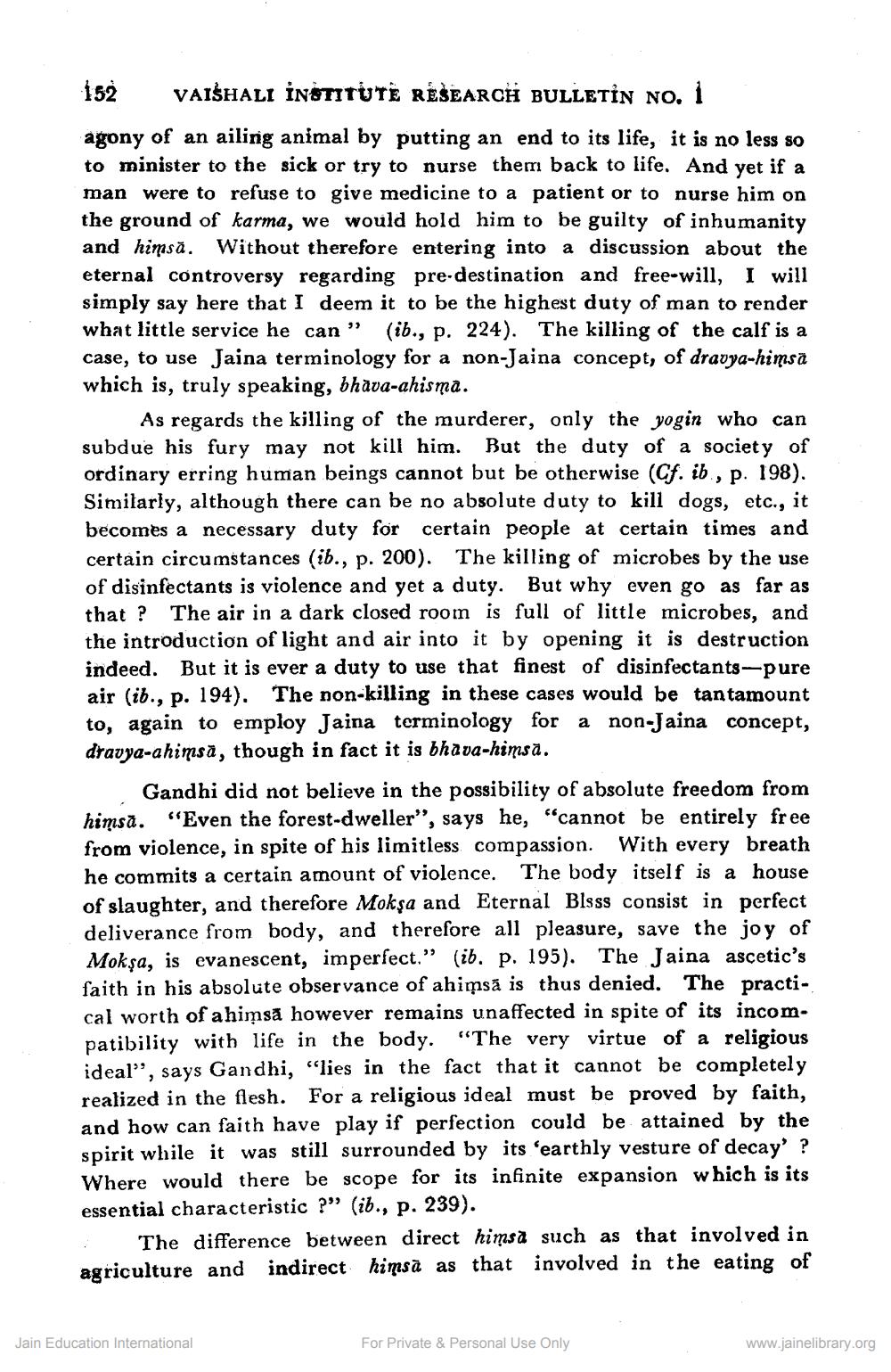________________
152 VAISHALI İNSTITUTE RÉSEARCH BULLETİN NO. 1 agony of an ailing animal by putting an end to its life, it is no less so to minister to the sick or try to nurse them back to life. And yet if a man were to refuse to give medicine to a patient or to nurse him on the ground of karma, we would hold him to be guilty of inhumanity and himsä. Without therefore entering into a discussion about the eternal controversy regarding pre-destination and free-will, I will simply say here that I deem it to be the highest duty of man to render what little service he can” (ib., p. 224). The killing of the calf is a case, to use Jaina terminology for a non-Jaina concept, of dravya-himsa which is, truly speaking, bhava-ahisma.
As regards the killing of the murderer, only the yogin who can subdue his fury may not kill him. But the duty of a society of ordinary erring human beings cannot but be otherwise (Cf. ib., p. 198). Similarly, although there can be no absolute duty to kill dogs, etc., it becomes a necessary duty for certain people at certain times and certain circumstances (ib., p. 200). The killing of microbes by the use of disinfectants is violence and yet a duty. But why even go as far as that ? The air in a dark closed room is full of little microbes, and the introduction of light and air into it by opening it is destruction indeed. But it is ever a duty to use that finest of disinfectants-pure air (ib., p. 194). The non-killing in these cases would be tantamount to, again to employ Jaina terminology for a non-Jaina concept, dravya-ahimsă, though in fact it is bhava-himsă.
Gandhi did not believe in the possibility of absolute freedom from himsa. “Even the forest-dweller", says he, “cannot be entirely free from violence, in spite of his limitless compassion. With every breath he commits a certain amount of violence. The body itself is a house of slaughter, and therefore Mokşa and Eternal Blsss consist in perfect deliverance from body, and therefore all pleasure, save the joy of Mokşa, is evanescent, imperfect.” (ib. p. 195). The Jaina ascetic's faith in his absolute observance of ahimsa is thus denied. The practical worth of ahimsa however remains unaffected in spite of its incompatibility with life in the body. "The very virtue of a religious ideal”, says Gandhi, "lies in the fact that it cannot be completely realized in the flesh. For a religious ideal must be proved by faith, and how can faith have play if perfection could be attained by the spirit while it was still surrounded by its earthly vesture of decay' ? Where would there be scope for its infinite expansion which is its essential characteristic ?” (ib., p. 239).
The difference between direct himsa such as that involved in agriculture and indirect himsă as that involved in the eating of
Jain Education International
For Private & Personal Use Only
www.jainelibrary.org




